“And why your organization will benefit from them”.
More and more companies are focusing efforts in process efficiency and operations modernization. Reasons may vary from providing a better customer service and experience to reduce cost and increase processing speed.
With this aim, companies are looking at ways to streamline operations.
To respond to this demand new workflow management tools are being developed. Among these, Enterprise Workflow Automation Solutions, which are the newest generation of BPMs.
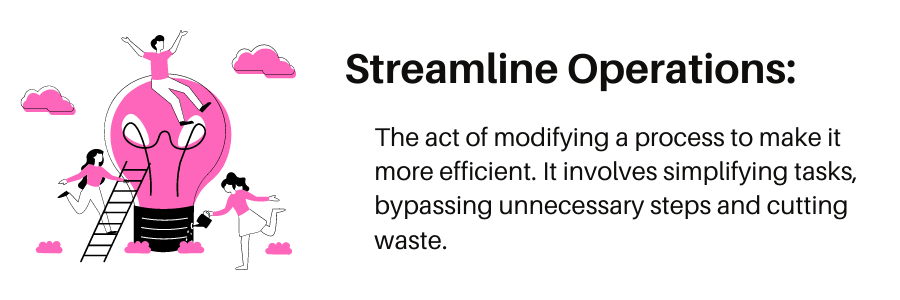
But before digging into them let’s clarify a few important terms.
Enterprise Workflow Automation vs. Workflow Automation Tools
When discussing Enterprise Workflow Automation Solutions, people often use the term Workflow Automation Application interchangeably. If it’s true that both look to solve similar problems, they are used in different contexts and by different types of companies.
Workflow Automation Solution is referred to as any software that automates business workflows or process workflows, as some would call them. They usually focus on one or very few types of processes.
A few examples of these are:
1- CRM applications: These are workflow automation platforms that have predefined workflows to automate client relationship processes. HubSpot and Salesforce are two of the most popular ones.
2- Email builders: These allow for marketing departments to create triggers within email campaigns. Once they’re built, there’s no action needed.
3- Bookkeeping Apps: Look to streamline accounting-related processes by automating tasks such as CC reconciliation or invoice creation.
Oftentimes, Workflow Automation Solution apps are very specific and do not leave room for personalization. Therefore companies that choose them may be constrained to use whatever logic they apply to the workflow.
Enterprise Workflow Management solutions, on the other side, permit tailored automation. It allows users to automate any type of time consuming task and business process, adding any business rule, condition or logic.
Automation tools such as these, are more flexible and powerful as they allow the user to automate workflows following very specific rules and conditions. Also due to its ability to seamlessly integrate with enterprise grade apps that you already use.
This makes this alternative more popular amongst larger companies, who are more structured and have unique and complex processes in place.
Larger companies with predefined processes are more likely to choose enterprise solutions as an evolution of Business Process Management (BPM) tools. Whereas smaller, less structured companies may go for out-of-the-box solutions for workflow automation.
» However, regardless of size, companies that look to standardize processes through-out the business, may need to consider Enterprise Process Automation software instead.
Explore VF Enterprise Workflow Automation Software!
Benefits of Enterprise Solutions
When using Enterprise Workflow Management Software, you can see at least these 9 benefits:
-
-
- Custom workflow design
- Digital processes
- Superior work management
- Reduced human error
- Improved business processes
- Time and money savings
- A boost in productivity
- Automatic audit trails
- Custom third-party app integrations
-
IMPORTANT STAT: More than 1/2 of surveyed companies saved up to 50% on costs previously associated with manual processing.
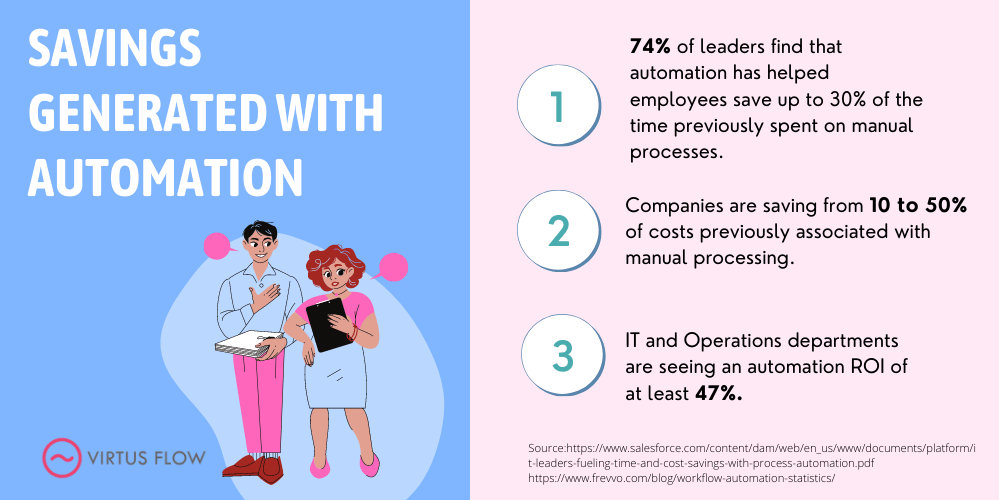
Types of Enterprise Workflow Automation Solutions
According to the level of coding required, we can split them in two groups:
» No-Code Solutions: This is the most modern type of workflow automation solution. As the name indicates, they don’t require coding to make and implement customization. No-code solutions offer simple drag-and-drop features that serve as a design tool. Users can simply add their own business rules and build workflows in minutes or hours.
Because no-code solutions don’t require IT skills, you can either use a template, keep the out-of-the-box app as is, or simply build workflows from scratch. Either way, process improvements should be easy to understand and implement.
» Low Code Solutions: Low-code development platforms use visual interfaces with simple logic and drag-and-drop interface instead of extensive coding languages. However, some degree of coding and IT skills are needed. These often have limitations and aren’t as easy to use as no-code options.
An important feature to look for when opting for low-code solutions is scalability. Low-code workflow software solutions should be able to handle an increase in users as your business grows.
7 Enterprise Workflow Automation Solutions to Look At
1- Virtus Flow: It’s an All-in-One No-Code Enterprise Workflow Automation Solution.
» With it users are able to automate any type of business process.
From workflows, to data entry, information delivery and storage, approval processes, digital forms, data pulling, third-party app integrations, contracts, documents and any type of repetitive task.
2- ServiceNow: It’s a low-code platform that offers solutions to automate business processes, tasks and omni-channel experiences. It also offers custom integrations and starts at $30,000/year for the standard package.

3- ProcessMaker: is a low-code BPM tool that lets you automate workflows, capture data, display data from other systems, and design approval screens for managers to make decisions. It’s price starts at $1,500 per feature, per month.
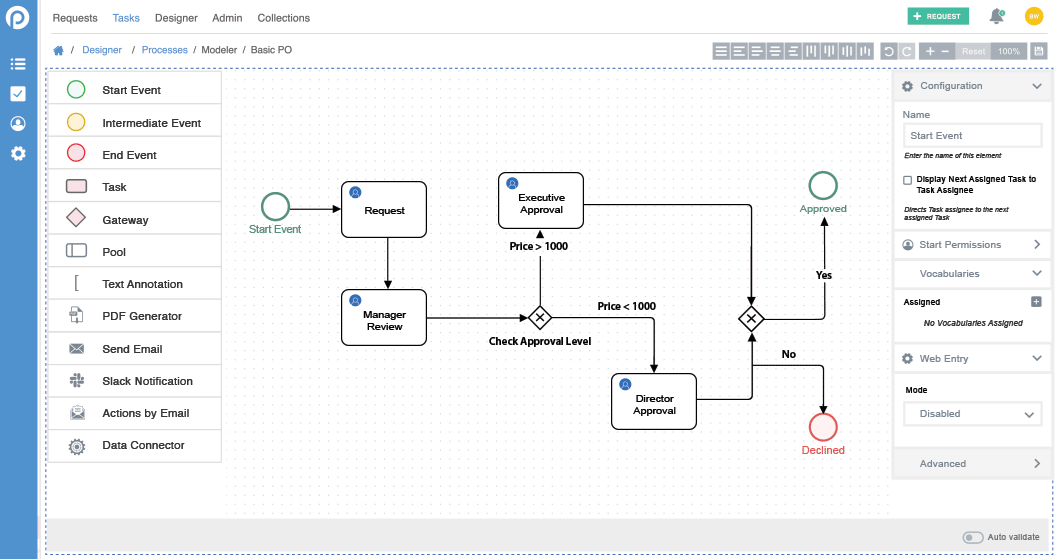
4- KissFlow: It’s a no-code/low-code workflow solution. It offers workflow templates, web forms creation and integrations with APIs and real-time analytics. You can get their basic workflow package for $200/month for 20 users.
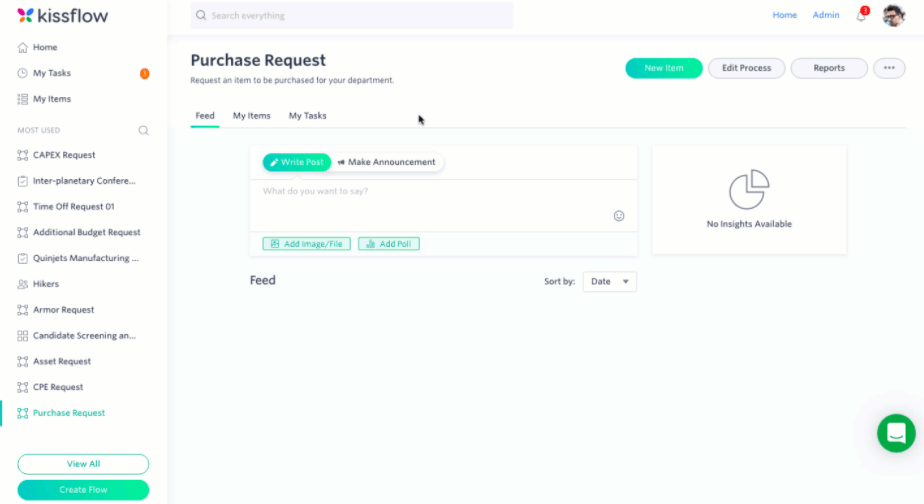
5- Nintex: low-code, cloud-based solution lets you digitize forms and workflows with user-friendly drag-and-drop functionalities for customization. Features include workflow automation, digital forms and process mapper. You can implement this solution starting at $910 per month.
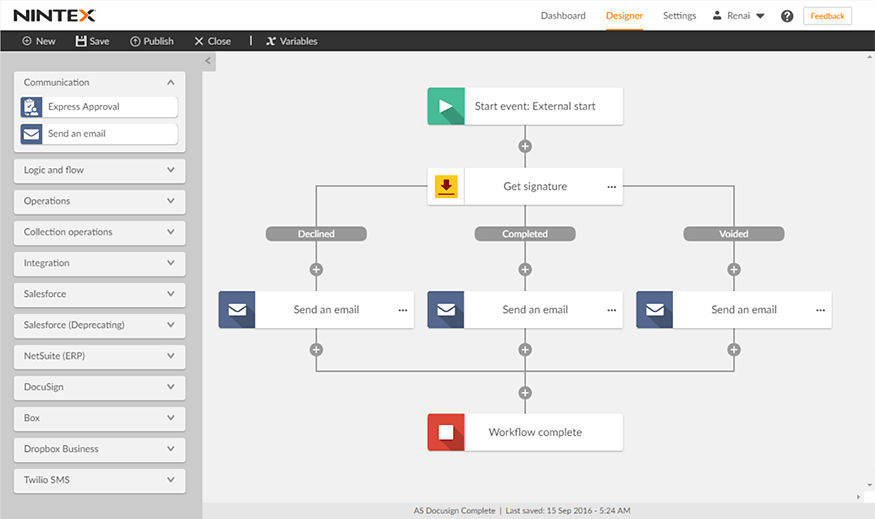
6- Decisions: a no-code workflow software that helps customize business rules, build dynamic forms, integrate with other systems, etc. Pricing starts at $4,839 per feature/month.
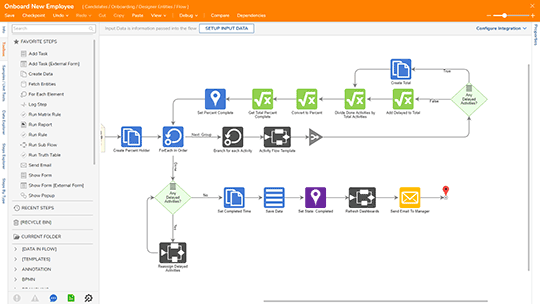
7- Pegasystems: It’s a low-code RPA platform. Features include workflow automation, chatbots, third-party integrations and business intelligence. This solution starts at $90 per feature / user / month.
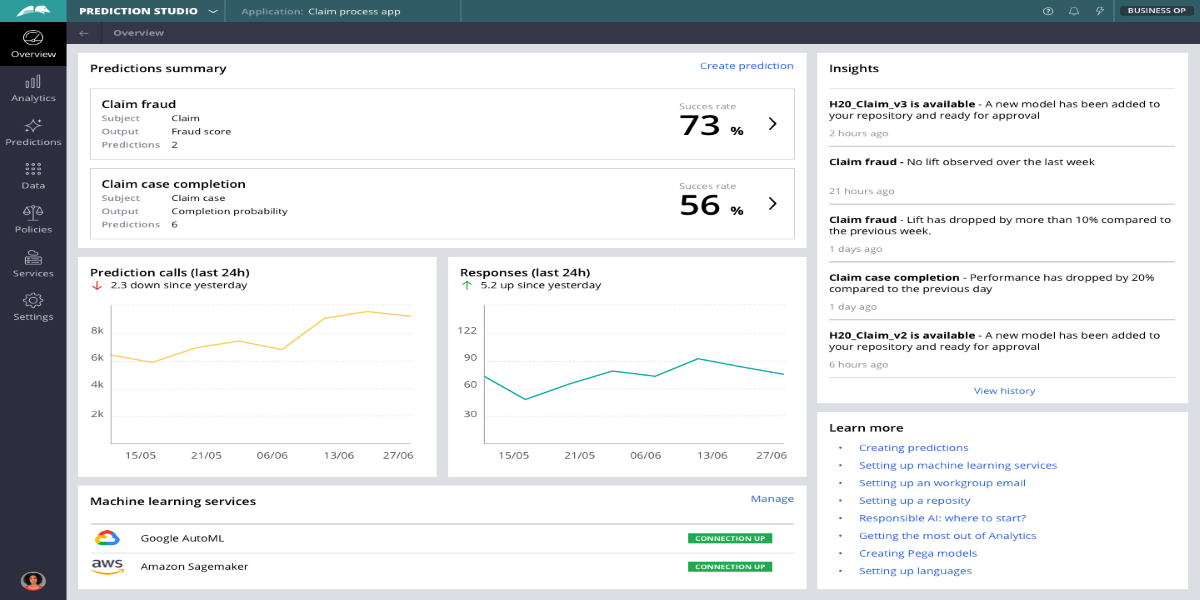
Conclusion
Organizations that are focused on process automation with Enterprise Workflow Automation see increases in efficiency and productivity, as well as savings in time and money.
Even if you are small in size, you may benefit from enterprise workflow solutions as opposed to specialized apps. There are budget friendly, yet powerful solutions available.
When looking for the right software, make sure you know what your needs are and which resources you have. A low learning curve app is always preferred as you will get your ROI sooner and users will notice benefits faster.
Automate your processes in minutes!
Digitize any business process and connect them the rest of the organization’s workflows. Have full visibility of your company operations from a single dashboard.




